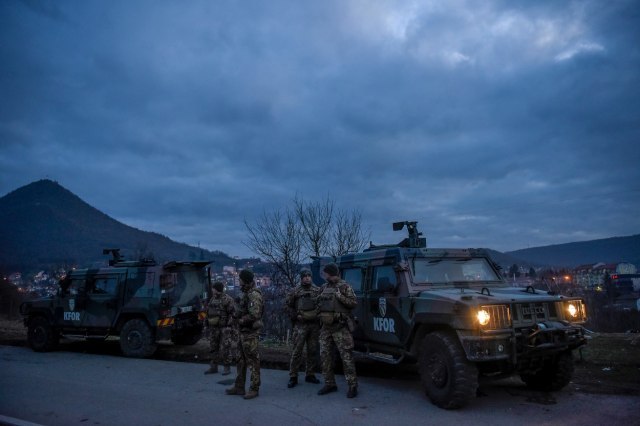British warn - Prevent the new outbreak in Kosovo...
The risk of an inevitable conflict is real should there be a delay of the Brussels Agreement this year, and if that happens, the consequences would be serious.
Monday, 09.01.2023.
17:48

British warn - Prevent the new outbreak in Kosovo...
"Relations between Pristina and Belgrade - which enjoys the enthusiastic support of the Kremlin and refuses to recognize Kosovo's independence - look worse than at any time in the last 20 years," the paper states.It is also indicated that the capacity of the European Union to mediate is "complicated", due to Serbia's dependence on Russian gas, but also Belgrade's refusal to impose sanctions on Moscow.
"If we don’t see the Brussels agreement of 2013 finally implemented this year - linking the political autonomy of the Kosovo Serbs to the normalization of relations between the two countries - the risk of an inevitable conflict is real. If this were to happen, the wider consequences would be serious, not only in terms of the new refugee crisis," warns the analysis.
The text recalls that the EU Summit - Western Balkans was held in Tirana at the beginning of December, and states that European officials gathered to send a "symbolic message".
The Guardian adds that this was the first summit held in a region whose population, for the most part, longs to belong to the "Brussels club", but has begun to doubt that it will ever happen.
That gesture, with concrete measures such as inclusion in the EU's Erasmus program, went well, with a reminder that Albanian Prime Minister Edi Rama stated that "things are changing", while other leaders welcomed "a new way of thinking".
A few weeks later, Bosnia and Herzegovina received the status of a candidate country for EU membership. Such a development is not difficult to explain, the Guardian adds.
"As EU enlargement fatigue has set in in recent years, the Western Balkans – and its seemingly intractable, unresolved tensions – have fallen on the European scale of geopolitical concerns. But the war in Ukraine has concentrated minds in Brussels as Russia seeks to expand its influence in the region at the expense of the EU and NATO and uses political instability to its advantage," the analysis reads.
That is why it is of utmost necessity for the West to refocus on this region, but "given the dark context", more than verbal incentives are needed.
The Guardian states that the situation in BiH is quite gloomy too, since Moscow provides generous support to "the secessionist agenda of the Bosnian Serb nationalist leader Milorad Dodik". At the same time, the Kremlin simultaneously "nurtures Bosnian Croat nationalists, who are equally determined to consolidate and deepen the ethnic divisions contained in the country's Dayton Constitution".
The paper also states that considering the geopolitical roles and the growing influence of Chinese investments in the region, the EU should strengthen its role.
At the same time, the success of anti-immigration, and Islamophobic parties in countries like France and the Netherlands means that eastward expansion is unrealistic for the foreseeable future.
It is also stated that in Serbia, support for EU membership dropped below 50 percent, due to pressure on Belgrade to impose sanctions on Russia.
"But the EU can still influence, and do the right thing, after years of neglect. Without joining the Union, additional economic support should be offered. In return for progress on reforms on corruption, the rule of law, and freedom of expression, a truly engaged approach could generate the goodwill necessary to calm regional tensions and respect democratic values," writes the Guardian.
The bad alternative is to allow the strategically vital region to turn to East as much as West, "empowering nationalist illiberal forces and advancing the Kremlin's agenda in Europe's backyard," the analysis concluded.






































Komentari 2
Pogledaj komentare